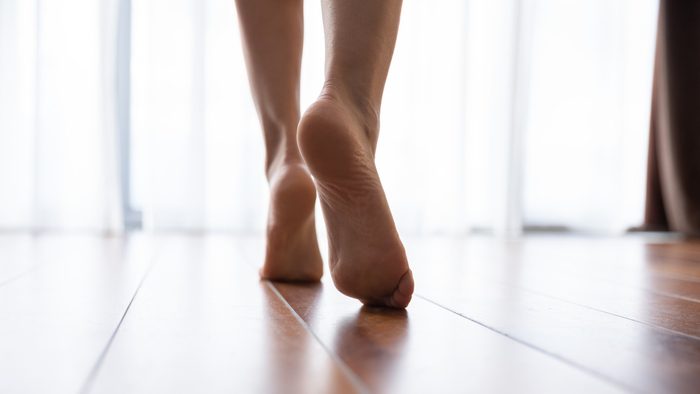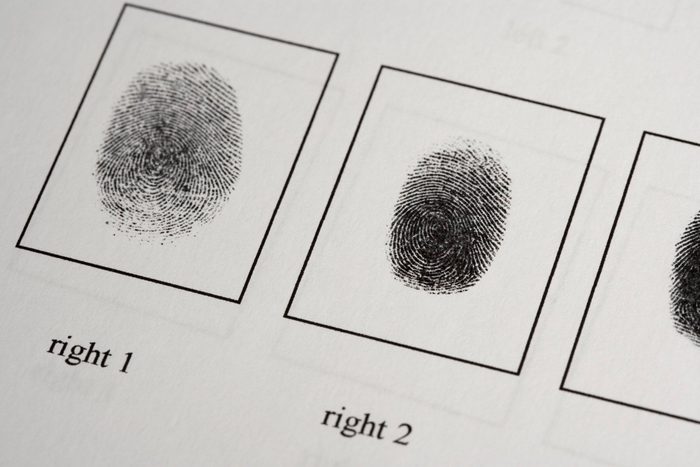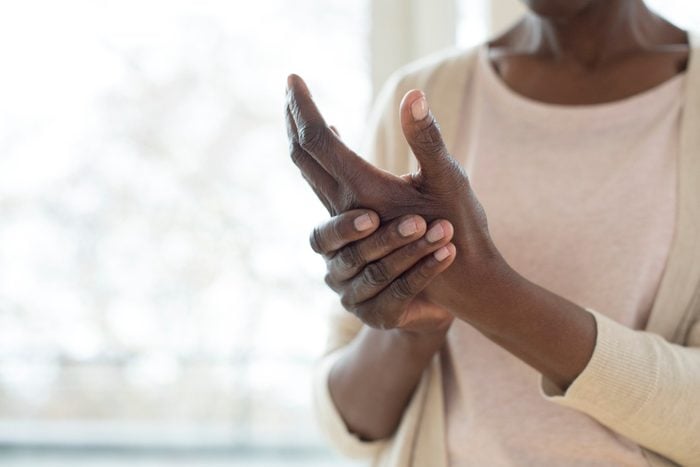
Do feet really get bigger with age?
After years of wear and tear, tendons and ligaments in your feet may weaken. This can cause arches to flatten, which means feet get wider and longer. It won’t happen to everyone, though—people who are overweight, who get swollen feet or ankles, or who have certain medical conditions, like diabetes, are more prone. If it does happen, the average gain is about one shoe size by age 70 or 80. —Cary M. Zinkin, DPM, podiatric sports physician and spokesperson for the American Podiatric Medical Association

What’s with that stomach-in-your-throat feeling on roller coasters?
Your insides are actually shifting. When a roller coaster comes over its crest, slows for a second for added torture, and then plummets downward, the seat belt keeps your rear in place, but some loosely connected internal organs—like your stomach and intestines—get a little “airtime.” But don’t get concerned in light of these strange facts. You’re not damaging your innards by riding even the craziest of roller coasters (everything returns to its proper place), but your nerves detect the movement, which registers as though your stomach has jumped into your throat. —Maged Rizk, MD, gastroenterologist at Cleveland Clinic’s Digestive Disease Institute. (Keep in mind that these everyday things can cause you unnecessary pain.)

How come women always seem colder than men?
Women tend to have a higher percentage of body fat and conserve more heat around the core than men. That helps keep vital organs nice and toasty but not the extremities—and when your hands and feet feel cold, so does the rest of your body. Plus, research suggests that women have a lower threshold for cold than men. When exposed to the same freezing temperature, the blood vessels in women’s fingers constrict more than men’s do, which is why they turn white more quickly. —Kathryn Sandberg, director of the Center for the Study of Sex Differences in Health, Aging and Disease at Georgetown University

Why does room temperature coffee taste so bad?
The temperature affects flavour, even if you brew the perfect coffee. Researchers in Belgium found that certain taste bud receptors are most sensitive to food molecules that are at or just above room temperature. So hot coffee may seem less bitter (and, in turn, taste better) because our bitter-detecting taste buds aren’t as sensitive when coffee is hot. Odours influence flavour as well, so even the most bitter hot coffee may taste delicious because of its pleasant aroma; room temperature coffee doesn’t smell the same. —Paul Breslin, PhD, professor at Rutgers University department of nutritional sciences. (Plus, here’s what happens to your body when you quit drinking coffee.)

How come you wake up at night to urinate but not to do anything else?
We’re often too embarrassed to inquire about the strange facts of our internal plumbing, but the answer is just plain biology. The sophisticated, intelligent neurons in your gut that control colon contractions, which push out waste, are also influenced by your body’s circadian rhythm, the internal clock that wakes you when it’s light out and makes you feel sleepy at night. So most people don’t have the urge to empty their colon in the middle of the night. On the other hand, the bladder, which acts a reservoir for the continuous flow of urine produced in the kidneys, can stretch only up to a certain volume before you have to go. Normally, you can sleep six to eight hours without having to urinate, but certain medical conditions or drinking too much water before bed can wake you to use the bathroom at night. —Pankaj J. Pasricha, MD, director of neurogastroenterology at Johns Hopkins Center for Neurogastroenterology

Why do we have fingerprints?
Many experts think it’s to improve grip, but a British study from a few years back suggests otherwise. Researchers found that a fingerprint’s ridges actually made it harder to hold flat, smooth surfaces, like Plexiglas, because they reduced the skin’s contact area. Instead, they think our prints might help wick water off our fingertips or allow our skin to stretch more easily, which can protect it from damage and help prevent blisters. Other scientists have suggested fingerprints could improve our sense of touch. What we do know for sure is that no two people’s fingerprints are the same, even among identical twins. —V. Patteson Lombardi, PhD, research assistant professor of biology at the University of Oregon

Can achy joints really forecast the weather?
Maybe. A change in barometric readings may be part of the reason why weather can predict our health: Atmospheric pressure often drops right before bad weather sets in. This shift could cause body tissue to expand, which can lead to swelling and pain. The effect is slight, but people who have arthritic or inflamed joints may detect the difference. Temperature may have an impact, too: In 2007, researchers at Tufts University found that every 10-degree drop in temperature corresponded with a small increase in osteoarthritic knee pain. —Leon Benson, MD, orthopedic surgeon at the Illinois Bone and Joint Institute and spokesperson for the American Academy of Orthopaedic Surgeons
Next, check out these interesting facts about your brain.
